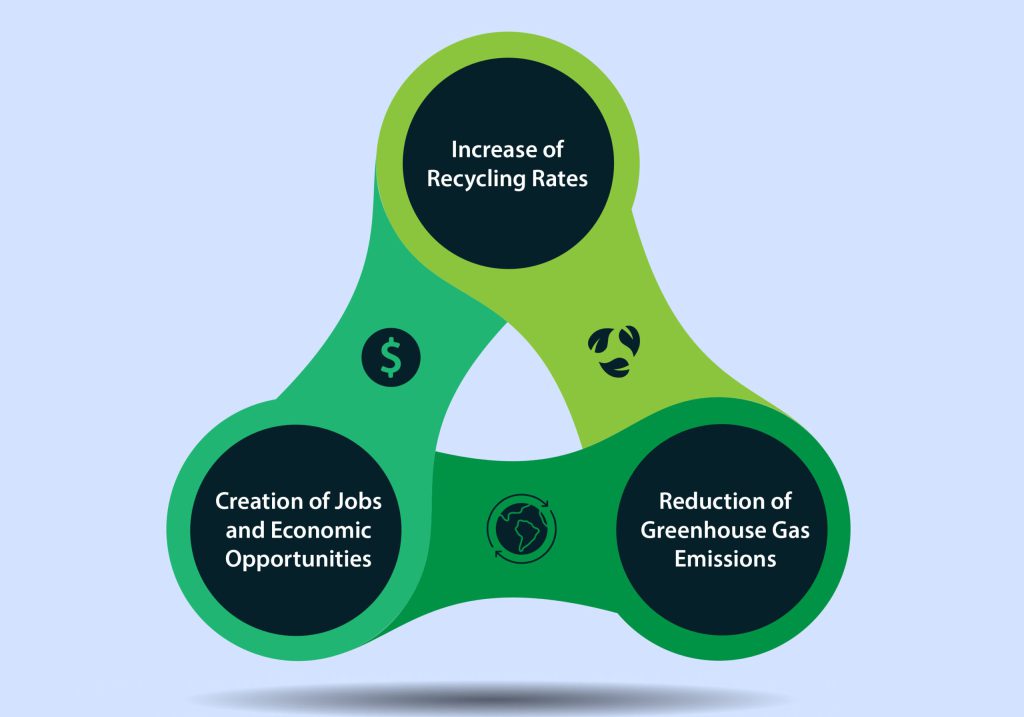
Deposit Return Schemes: A Smart Way to Reduce Environmental Pollution
Plastic pollution is one of the most pressing environmental challenges of our time. Every year, millions of tonnes of plastic waste end up in landfills, incinerators, or in the oceans, where they pose a threat to wildlife, ecosystems, and human health. One of the main sources of plastic pollution is single-use drinks containers, such as plastic bottles and cans, which are often discarded after consumption.
To tackle this problem, many countries have introduced or are planning to introduce national deposit return schemes (DRS) for drinks containers. A DRS is a system that encourages people to recycle drinks containers by charging them a small deposit when they buy a drink, and refunding it when they return the container to a designated collection point. A DRS can have multiple benefits for the environment, the economy, and society. In this blog post, we will explore some of these benefits and how they can help reduce plastic pollution.
Increase of Recycling Rates and Quality
One of the main benefits of a DRS is that it can significantly increase the recycling rates and quality of drinks containers. By providing a financial incentive and a convenient way to return containers, a DRS can motivate consumers to recycle more and litter less. For example, in Germany, where a DRS has been in place since 2003, the recycling rate for plastic bottles is over 90%, compared to around 70% in the UK. A DRS can also improve the quality of the recycled material by reducing contamination from other types of waste. This can make the recycling process more efficient and cost-effective, and increase the value of the recycled material.
Reduction of Greenhouse Gas Emissions and Resource Consumption
Another benefit of a DRS is that it can reduce greenhouse gas emissions and resource consumption associated with drinks container production and disposal. By increasing recycling rates and quality, a DRS can reduce the demand for virgin materials, such as oil and metals, which are used to make new containers. This can save energy and water, and avoid emissions from extraction, processing, and transportation of raw materials. Moreover, by diverting containers from landfills and incinerators, a DRS can prevent emissions from decomposition or combustion of waste. According to a study by Zero Waste Scotland, a DRS could save up to 4 million tonnes of CO2 equivalent over 25 years in Scotland alone.
Creation of Jobs and Economic Opportunities
A third benefit of a DRS is that it can create jobs and economic opportunities for various stakeholders involved in the collection and recycling of drinks containers. A DRS can generate income for retailers, charities, community groups, or individuals who host collection points or return containers. It can also create employment for people who work in the collection, transportation, sorting, processing, or manufacturing sectors related to drinks container recycling. For instance, in Norway, where a DRS has been operating since 1999, it is estimated that the system supports over 1,000 jobs.
Raising Awareness and Engagement on Environmental Issues
A fourth benefit of a DRS is that it can raise awareness and engagement on environmental issues among consumers and producers of drinks containers. By participating in a DRS, consumers can learn about the environmental impacts of their consumption choices and the benefits of recycling. They can also feel empowered to take action and contribute to solving the problem of plastic pollution. Furthermore, by implementing a DRS, producers can demonstrate their corporate social responsibility and commitment to reducing their environmental footprint. They can also gain insights into consumer preferences and behaviour, and innovate to design more sustainable products and packaging.
Conclusion
In conclusion, a DRS is an effective policy instrument that can have multiple benefits for reducing plastic pollution from drinks containers. A DRS can increase recycling rates and quality, reduce greenhouse gas emissions and resource consumption, create jobs and economic opportunities, and raise awareness and engagement on environmental issues. By adopting a DRS at a national level, countries can make significant progress towards achieving their environmental goals and commitments.
If you are interested in this article, you might also find this interesting Circular cities: Explore How Urban Environments are Adopting Circular Economy Principles for a Sustainable Future

